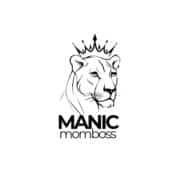Breastfeeding Awareness Month: Insights From Lactation Consultant Teddy Roorda



Hi, I’m Nadya van der Sluis, founder of Manic Momboss.…
Last month marked the end of a significant chapter in my journey as a mother: I concluded breastfeeding. Being able to breastfeed for two years was a heartfelt achievement, one that I had only dared to hope for when I began. It was vital for me to breastfeed on demand and continue for at least two years, as I believe it is a fundamental right for our child, rooted in my religious beliefs.
Breastfeeding, while a natural process, requires learned skills, practiced diligently and supported by accurate information. Anticipating the challenges, I enrolled in the Dutch online course created and led by Teddy Roorda, a renowned lactation consultant, before my labor began. I also consulted with her about how to gracefully conclude breastfeeding when it was time. Teddy, an expert in the clinical management of breastfeeding, supports, educates, and assists mothers and families to navigate the complexities they might encounter.
Given that August starts with World Breastfeeding Week, I seized the opportunity to interview Teddy Roorda. This observance highlights the immense benefits of breastfeeding for both infant health and maternal welfare, promoting better nutrition, poverty reduction, and food security. The week also focuses on the critical need for proper support for breastfeeding and the importance of enabling mothers to breastfeed as long as they desire.
Teddy Roorda, who I rather refer as the ‘lactation queen’ of the Netherlands, brought a wealth of experience to our discussion. Before becoming a lactation consultant, she navigated a 25-year career in the corporate world as a marketing and sales manager, all while breastfeeding her three children. She candidly shared, ‘With my first child, I almost stopped on day ten, a notorious day when many consider quitting. A visit from a breastfeeding friend helped me push through.’ Teddy successfully breastfed her two oldest children for six months and her youngest for over three years, each experience enriching her understanding and approach to breastfeeding.
Before fully committing to her role as a lactation consultant, Teddy volunteered with the Association of Breastfeeding Naturally, leading support groups from her living room. After experiencing burnout, she decided to retrain, using her personal experiences as the foundation for her current practice.
In her professional role, Teddy assists numerous mothers-to-be and healthcare professionals by providing crucial information and guidelines on breastfeeding. Describing her work, she says, ‘It feels magical to guide women through this vulnerable process.’ When discussing common misconceptions about breastfeeding, Teddy revealed, “Too many to list, but I’ll try to mention a few. The most significant is the belief that women generally produce insufficient amounts of milk, which is often not the case. We are designed to feed our babies ourselves. Only 2-5 % of women cannot breastfeed their baby due to circumstances.

The Joys Of Guiding Women Through Their Most Vulnerable Journey Making It A Tranquil & Nurturing Experience; Image: Teddy Roorda
The expectations are too high and the knowledge among many healthcare providers is insufficient, leading to fear and insecurity and a desire to supplement.” Teddy continues that often it is precautionary, out of fear. Unfortunately, also mostly unnecessary. She also addressed the myth that breastfeeding pain is normal, stating, “Breastfeeding should not be painful. Proper latching, which is often underestimated, makes it comfortable in most cases.”
Reflecting on my own experiences, those moments of breastfeeding were tranquil respites where I bonded deeply with our child amidst the chaos of daily life. Initially, I experienced pain due to incorrect latching, but thanks to Teddy’s course, complete with practical demonstrations, I quickly corrected my approach.
Teddy developed her online course to empower women with reliable and practical breastfeeding knowledge. ‘The course covers essential techniques and nurtures trust in one’s maternal instincts and the baby’s cues, crucial for confidently navigating the postpartum period,’ she explained.
The reason Teddy created her online course is to reach as many women as possible with good information about breastfeeding. She also noticed that an increasing number of people were engaging with online programs, prompting her to explore this area and develop a program where women could learn the essentials of breastfeeding. Teddy teaches them practical skills, but also how to trust their instincts and their baby’s. She finds this so important, because breastfeeding itself is not difficult if you know how it works and if your expectations are realistic. That is why the postpartum checklist is an important part of her Dutch online course. It really helps women get through the postpartum period without becoming insecure.
My path was uniquely challenging due to my bipolar disorder, diagnosed in 2009, which increased my risk of postpartum psychosis or depression. I prepared intensively for my labor and postpartum period with a detailed plan developed with my medical team and mental health professionals. Additionally, the diverse experiences shared by Islamic mompreneurs online provided further support, especially concerning labor recovery and breastfeeding.
Teddy highlighted the glaring lack of diversity among Dutch lactation consultants, which is predominantly white. “This gap often makes it difficult for women of diverse backgrounds to connect with their healthcare providers,” Teddy added. She actively encourages women from all cultural backgrounds to consider a career in lactation consulting, a step towards more inclusive and relatable healthcare support for every mother.
As we advance the conversation about breastfeeding across cultures, it becomes increasingly clear that this is more than a personal journey—it’s a communal endeavor that benefits from diverse perspectives. Teddy Roorda’s insights not only enrich our understanding but also invite us to consider the broader implications of inclusivity in healthcare. By embracing the varied experiences of all mothers and advocating for a more representative range of lactation consultants, we pave the way for a more supportive and understanding environment for every family. Together, we can ensure that breastfeeding support is as universal as the act itself, transcending cultural boundaries to nurture the next generation.
What's Your Reaction?

Hi, I’m Nadya van der Sluis, founder of Manic Momboss. I help mompreneurs take charge of their mental health while staying rooted in their own business path. It’s not about balance. It’s about knowing when to lead, when to pause, and how to stay honest with yourself through it all. I’m also a co-author and a keynote speaker, invited to international mental health conferences where I speak to psychiatrists and psychologists about what’s really happening beneath the surface. My mission is to shift the conversation. To bring light to what gets left out of the headlines. Through my columns, I write what most people are afraid to say out loud. Because awareness starts with truth, and I’m here for all of it.



